“The French love Easter. Everything will be closed on Sunday and Monday - buy your groceries for the whole weekend on Friday or Saturday.” This advice from our local friends was only slightly exaggerated.
Easter Sunday and Easter Monday are public holidays in France and while Good Friday is not a public holiday, a lot of people take that day off as well and enjoy a 4-day weekend. By law, France has been a secular country since 1905 when a law was passed guaranteeing French citizens freedom of conscience and guaranteeing the separation of church and state. Therefore, there aren’t any major official (read, state sponsored) celebrations of Easter.
The holiday was definitely on display for the last week; chocolate shop windows were brimming with bunnies, eggs, chickens, and fish (?), stores posted signs warning us of the impending fermeture exceptionnelle. We didn’t panic, after all, we had made dinner reservations with friends for Easter Sunday evening, so surely there’d be other food and services available, right?
YES! On Sunday morning I was pleased to discover that many restaurants were open and (more importantly) so was my favorite coffee shop. The neighborhood produce market, Les Halles Castellane was active with about 90% of the stalls open for business, and according to Google, the Monoprix grocery store at La Place de la Comédie would be open for limited hours. I wandered through Les Halles on my way to the coffee shop and bought bacon, a roast chicken, eggs, and a few fruits and vegetables. After returning home with the small load of groceries and prepared food (and a matcha latte for Carolyn) I headed to Monoprix to get milk, cereal, and a few condiments. Now we were stocked up for two days of lunch at home and we’d be able to improvise an informal dinner if necessary.
The Easter traditions in France are slightly different than what we are used to in the US. First, while there are Easter bunnies everywhere, the French tradition is that the Easter eggs are brought by magic bells! How’s that? Well, in the 7th century the Church forbade the ringing of church bells between Maundy Thursday and Easter Monday, in deference to the death of Christ (Maundy Thursday is the Thursday before Easter when it is believed that Jesus celebrated his last Passover, famously washing the feet of his disciples). During the period of silence, the bells would magically fly to Rome where they were blessed by the Pope, they returned full of eggs which they scattered in yards and gardens on their journey home. (Back in the day, the eggs were just eggs, not chocolate eggs - I’m not sure when the change occurred but it must have been a major upgrade to the holiday in the eyes of EVERY French child.) Traditionally, eating eggs would have been forbidden during Lent so they’d be a real treat on Easter, and available in abundance. The egg hunt or chasse-aux-œufs is a big deal in France, we didn’t manage to see one but we don’t usually see tons of young kids in the old city center.
So what’s with the chocolate fish? It turns out they aren’t really related to Easter at all, they have to do with the French equivalent to April Fool’s Day, Poisson d’Avril. As a joke, kids might try to attach a paper fish to their victim’s back. There are many theories, some demonstrably false, about the origins of the fish symbol. Some believe the fish symbolizes the end of Lent, a period when fish would have been an acceptable food, some believe poisson (fish) is a mistranslation or play on of la passion, the passion of Christ.
Carolyn and I spent Easter at home where we worked on a few household projects, like choosing a paint color for the music room, framing artwork we shipped to ourselves from Texas, replacing burnt out light bulbs throughout the house, practicing our guitar and singing, and finally with a pleasant, casual dinner out with a local couple we have befriended. We hope you all enjoyed a peaceful holiday in the company of friends and family!
Jusqu’à la prochaine fois (until next time).
Carolyn & Roberto

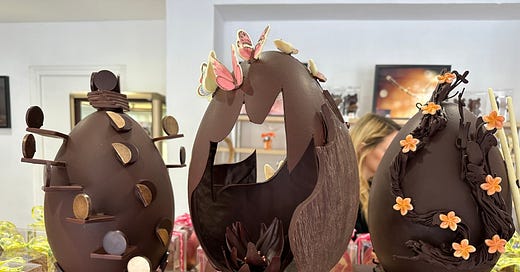



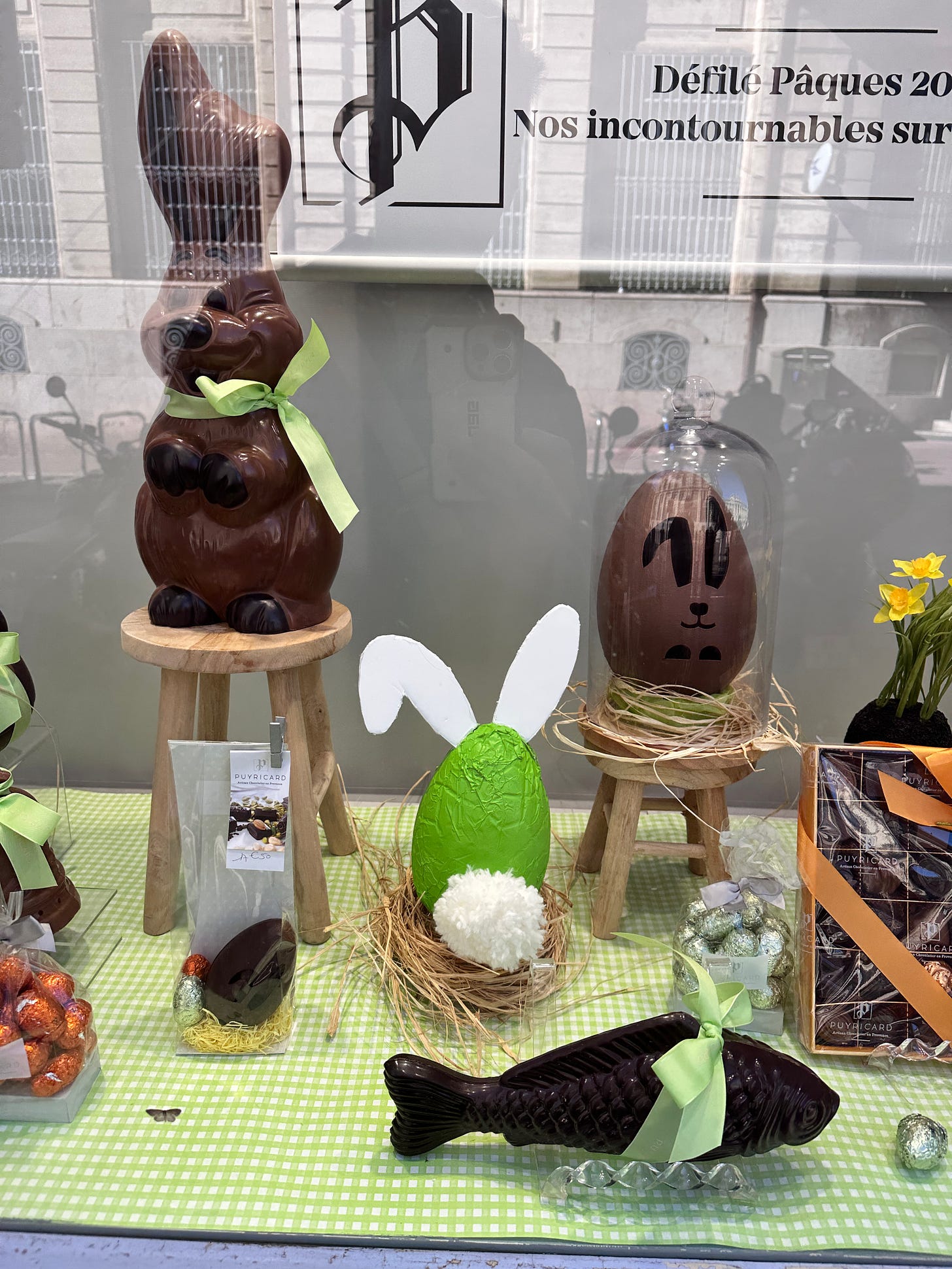
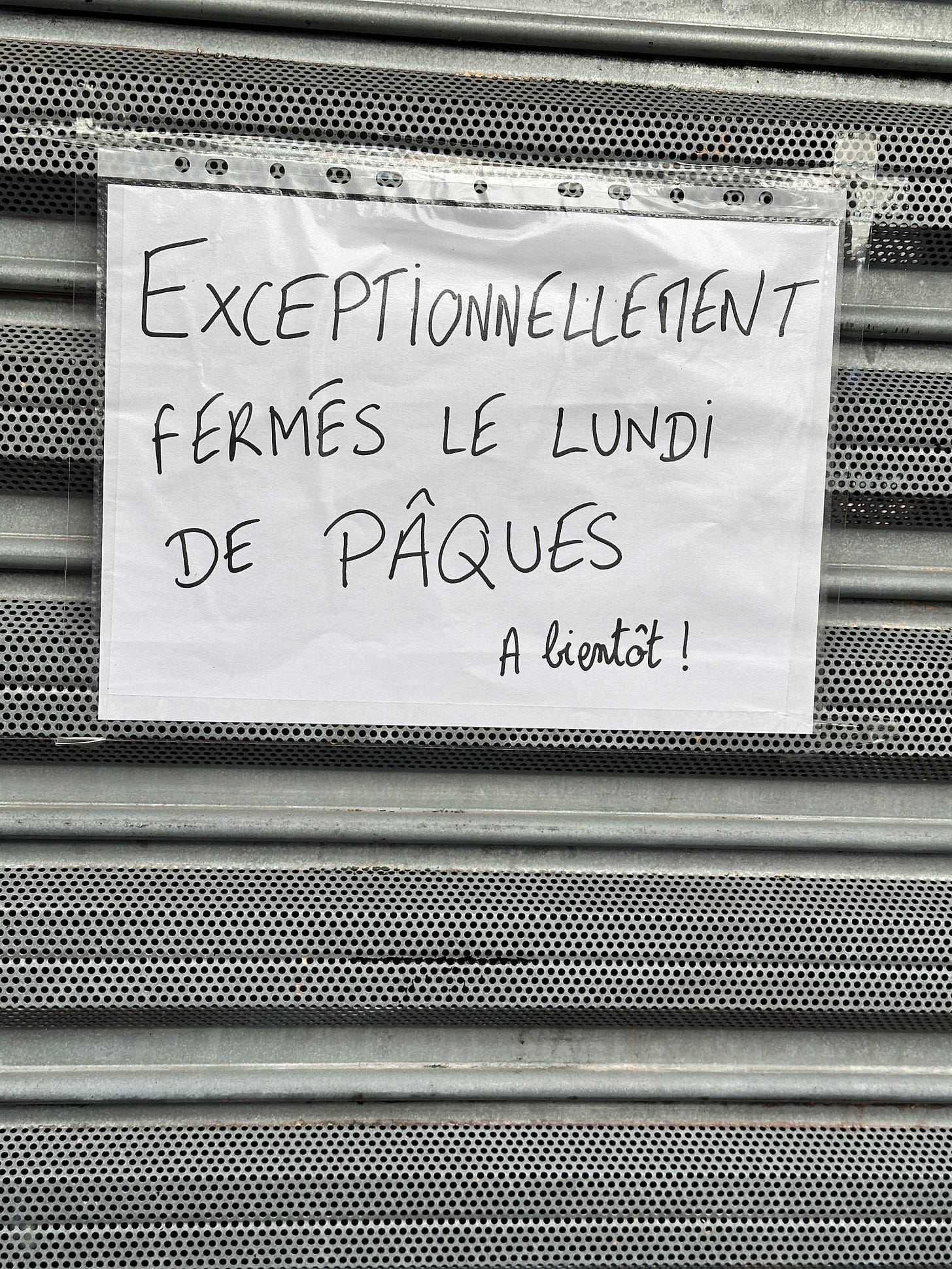
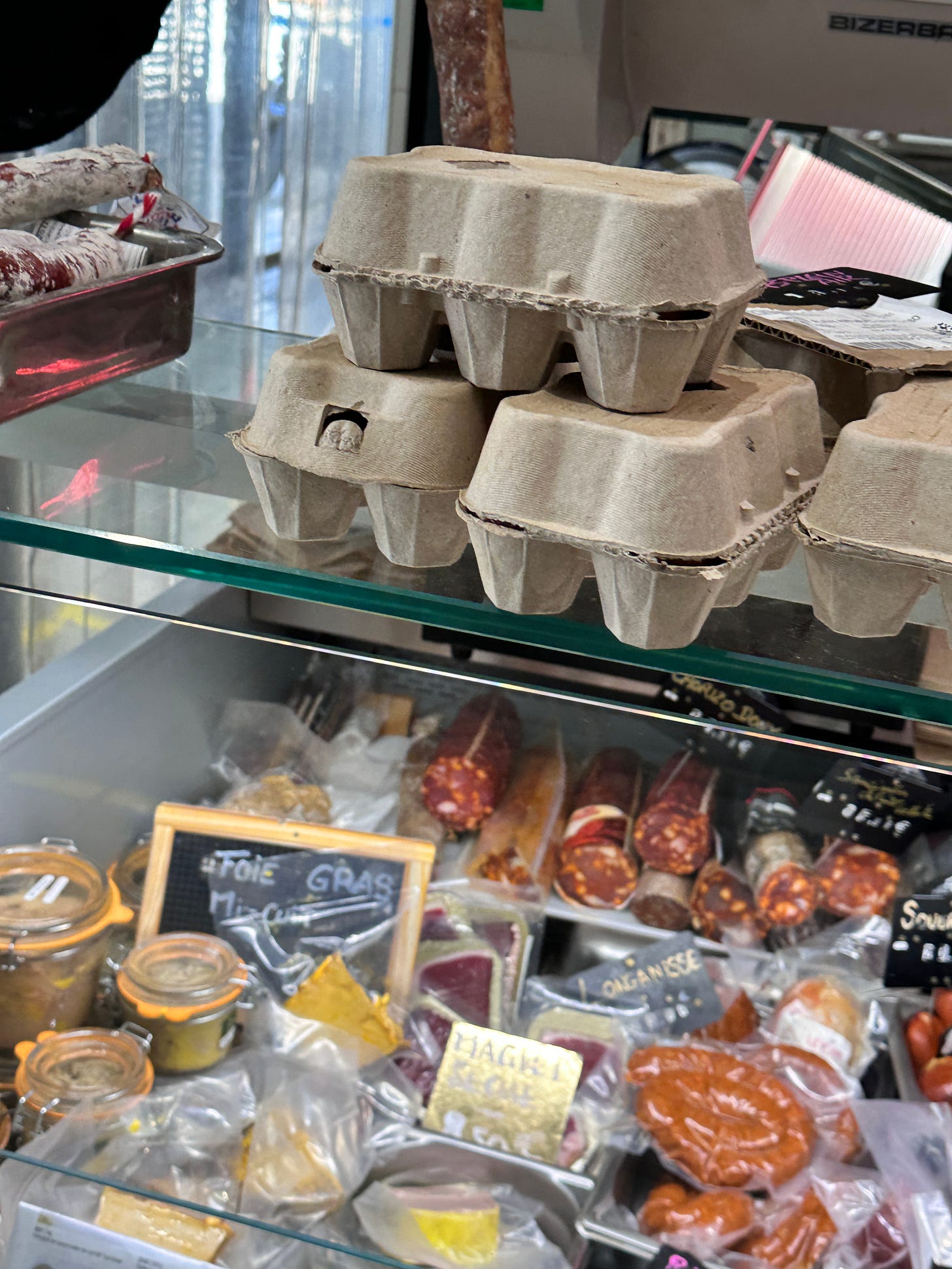
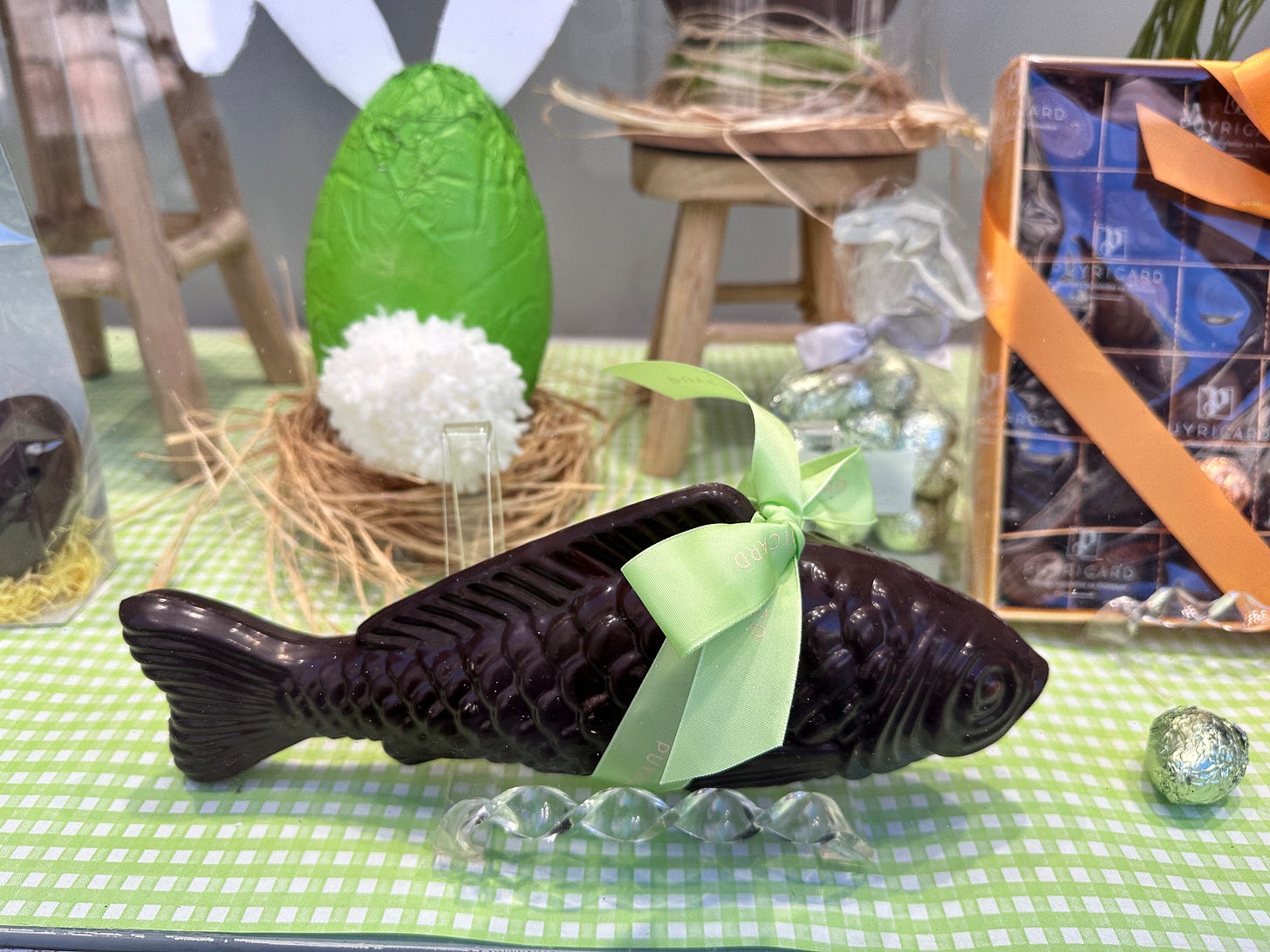

A must-read or listen-to piece by David Sedaris. I think it is from one of his early collections, Me Talk Pretty One Day. Joyeuses Pâques!
https://365thingsiloveaboutfrance.com/2014/04/20/no-210-jesus-shaves-easter-explained-in-french-class-by-david-sedaris/